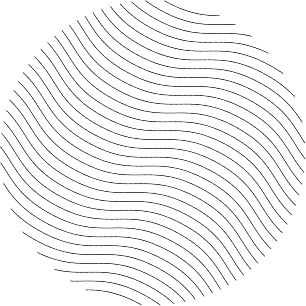Biography
Juan José Giambiagi Persico, Argentine / Brazilian theoretical physicist (Buenos Aires 18 January 1924 – Rio de Janeiro 08 January 1996)
Regarded as expert of world renown on quantum field theory
Authored about 90 scientific works
ACHIEVEMENTS
Developed elimination divergence method in quantum field theory and in six dimension super symmetry
Invented analytical regularization method
With C.G. Bollini & A. Gonzalez Dominguez. Analytic regularization and the divergence of quantum fields theories. Nuovo Cimento 31:550-61, 1964
Invented dimensional regularization method
With C.G. Bollini. Dimensional Regularization. J. Nuovo Cimento 12 B:20, 1972
Eponym of Bollini-Giambiagi potential
OTHER CONTRIBUTIONS
An alternative dimensional reduction prescription. Mod. Phys. Lett A 11(13):1037-45, 1996
With C. G. Bollini & O. Obregon. Criteria to fix the dimensionality corresponding to some higher derivative Lagrangians. Modern Phys. Lett. A 7(7):593-9, 1992
With C.G. Bollini. Lagrangian procedures for higher order field equations (1986)
With C.G. Bollini. Relations between effective potentials in different dimensions. Phys. Lett. B 134(6):436-8, 1984
With C.G. Bollini. A differential equation for the self-energy in momentum space. Phys. Lett. 10(2):219-21, 1964
With M. Giambiagi, Segre de Giambiagi & C.G. Bollini. On a SC method for determining bond orders in alternant hydrocarbons.
HONORS
Visiting Researcher, California Institute of Technology (1958)
Visiting Researcher, Centre Europeen pour la Recherche Nucleaire (1976)
His brother, Mario Giambiagi Persico, Argentine / Brazilian quantum chemist (1928 – Rio de Janeiro 08 March 2002)
Authored over 60 papers
First to define bond indices for multicenter systems
With M. Segre de Giambiagi & K.C. Mundim. Definition of a multicenter bond index. Struct. Chem. 1(5):423-7, 1990
With R. C. Ferreira & M. Segre de Giambiagi. Une approximation pour lês parametres semi-empiriques conjuguées. J. Chim. Phys. 61:694, 1964
Presented simple rules for the bond order properties of conjugated organic molecules having two-fold symmetry (1979)
With M. Segre de Giambiagi. Two simple symmetry-dependent rules in conjugated systems. Lett. Nuovo Cimento 25:459-62, 1979
Proposed a MO multicenter bond index as a measure of aromaticity
With M. Segre de Giambiagi, C.D.S. Silva & A.P. de Figueiredo. Multicenter bond indices as a measure of aromaticity. Phys. Chem. Chem. Phys. 2:3381-92, 2000
With M.S. Giambiagi found an analytical expression relating softness with the experimental molecular polarizability (1993)
With M.S. Giambiagi proposed a definition for the number of electrons X involved in a three-center bond, based upon the corresponding two-center bond indices (1994)
With C.G. Bollini, M.S. de Giambiagi & A.P. de Figueiredo. Graphical linking of MO multicenter bond index and VB structures. II-5-c rings and 6-c heterocyclic rings. Struct. Chem. 12(2):113-20, 2001
With F. Cernuschi & M.S. de Giambiagi. Application d’un modele d’ordre a courte distance aux electrolytes forts
With J.J. Giambiagi, M. Segre de Giambiagi & C.G. Bollini. On a SC method for determining bond orders in alternant hydrocarbons. Theoret. Chim. Acta 18:394-8, 1970
Eponym of Giambiagi bond order
Spouse of Mario, Myriam Malvina Segre de Giambiagi, Argentine-born Brazilian physical chemist (1937 –
With M. Giambiagi & K.C. Mundim. Group-group bond index for molecular systems. J. Chem. Soc. Faraday Trans. 88:29959, 1992
With M. Giambiagi, J.M. Pires & P. Pitanga. Mollesse d’un atome dans une molecule et definition de la mollesse d’un groupement fonctionnel: une echelle LCAO. J. Mol. Struct. Theochem. 180:223-31, 1988
With M. Giambiagi, D.R. Grempel & C.D. Heymann. Sur le definition d’un indice de liaison (TEV) pour des bases non orthogonales. Proprietés et applications. J. Chem. Phys. 72:15-22, 1975
With M. Giambiagi. Certain rules concerning alternant hydrocarbons. Chem. Phys. Lett. 1:563-5, 1968
With F. Cernuschi. Theory of condensation of liquids of one and two-components. J. Chem. Phys. 36:412, 1962
With M. Giambiagi & F. Cernuschi. Theory for strong electrolytes in not too dilute solutions (1962)


